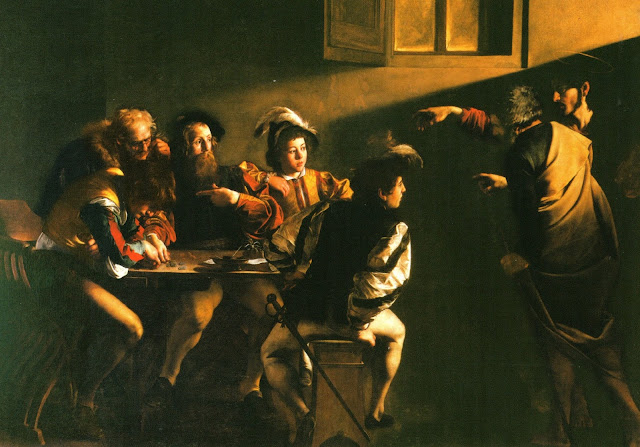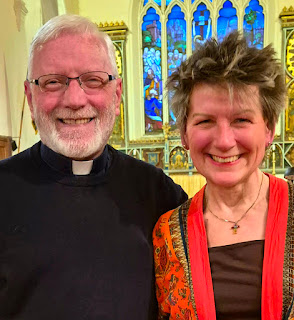WEST SIDE OF THE WILDERNESS (Moses & the Bog)
It’s funny where a reading can take you. Moses on the west side of the wilderness brings my mind to a kind of wilderness of the West of Ireland. The Bog. Not that it’s confined to the West but that’s where I have known it, this very Irish reality.
Bogland has yielded
up turf to generations of Irish people, gift of the earth to us, this God-given
gift that has warmed the homes of countless families when there was little or
nothing else to keep them warm. Turf has given us the fire on which the kettle
was boiled for the tea. On it bread was baked and dinners cooked.
It gave our homes an unparalled atmosphere, feeding the contemplative spirit by which we gazed in long silence upon its flame, learning our own lessons there. It facilitated companionship, the gathering of people around the open fire in night-time conversations and music. The Rosary and other prayers prayed there.
The harvesting of turf speaks of good neighbourliness,
people out working together, helping each other out.
One of my
lovely memories of childhood in Raford is of bringing tea and bread across the
fields to my grandfather in the bog, helping him to load up the cart with turf,
climbing on top and making the journey with him back home.
The smell of burning
turf still awakens something precious in the psyche and even in the soul of
people of my generation. It is a holy and a sacred thing, even as it approaches
its retirement and is viewed negatively by the city that does not understand
it, by a way of life that has forgotten that there are values other than the
material, values even more important than the physical.
I would dare
to say that the culture of turf and the open fire was mentally, emotionally and
psychologically healthier on many levels. Much less stressed. Kinder. More
content.
“Beautiful,
beautiful, beautiful God was breathing His Love by a cut-away bog.” (The One)
God being
discovered in ordinary and, sometimes the least likely, places. As Moses discovered.
Moses was
going about his ordinary task of herding the sheep when he glimpsed the strange
sight of the Burning Bush through which God revealed Himself, speaking to Moses
and calling him to another way of living. It was as always God’s initiative,
but it also required Moses to be paying attention to his surroundings.
Attentive and alert for the moment of surprise. It is a holy thing, this holy
ground of a person's encounter with God in the ordinary.
Opportunities for
such divine encounters are provided in whatever context we find ourselves – in the
country, the city, the sea or the sky – and the repentance that we are called
to is, like Moses, to turn and see what is there, the One Who Is there - the I AM - and hear what He is
saying to us.
As with Moses
He reminds us that the place where we are standing is Holy Ground, every place
and every moment of encounter with God is sacred and deserving of our respect. The bed of the sick is a Burning Bush, as is the confinement of depression, the prison cell of addiction - whatever affliction may be our experience. We are called to take off our shoes in one way or another, touch the reality of
where we are with the bareness of our foot – to do that emotionally, mentally,
spiritually and maybe even physically.
You get to do
this on every level in St. Patrick’s Purgatory in Lough Derg. That which is
tender in us touches and endures the roughness of earth and rock. Real. Without
pretence or affectation. It is raw prayer.
On the Holy
Ground of our being, our present reality, God tells us that He has seen our
affliction, He has heard our cry, and He has come down to help us, to lead us
on the slow but certain path of our exodus.
But we have to
be there in the encounter. It is we who must see and hear and it is we who must
move from where we are to the place of liberty. Though sometimes people’s
dejection is so deep that they can do none of these things, as Moses was to
discover when he went to tell the people of Israel what God was promising. They
had to somehow be forced into going where they were afraid to venture. Life
does that to us. God does it to us.
A simple bush
on a mountain became a place of divine revelation and a fig tree in the Gospel
tells us something of God’s ways of dealing with us.
A useless barren
tree, bearing no fruit! What would you do but get rid of it. But not Jesus. He
is the gardener who offers a second chance to the barren soul, working with it,
labouring to make it living and productive. This is the good news of redemption
which is offered to us by Him.
I have seen, I have heard, I have come down, I will give you another chance.
+++
I am a childIn my Grandmother’s
Kitchen
With the evening
Closing in
And we are alone
The two of us
By the open fire
And she handing me
Rice on a red plastic
Plate and I savouring
Its loveliness
The lapping of flames
In turf and the clock ticking
We are not in need
Of words
And do not speak them
I am a child
In my Grandmother’s
Kitchen
Kneeling at her feet
Hands joined and resting
On her lap
Finding God in
The kitchen and the home
Of our lives
And being loved
This is my prayer
+++
“I think it pisses God off if you walk by the color purple in a field somewhere and don't notice it.”






.jpg)


.jpg)



I loved reading this. Thank you Father.
ReplyDeleteBeautiful….just beautiful. Thank you. I'm going to send it to a friend suffering with intractable depression.
ReplyDelete